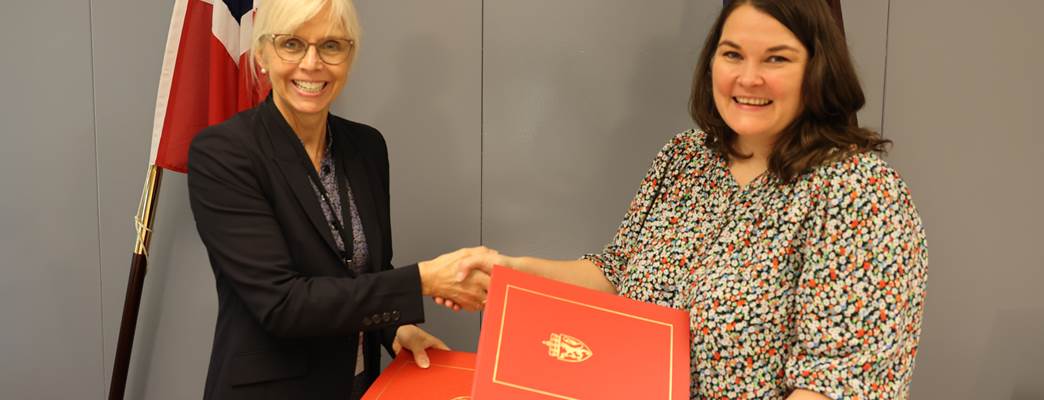Norway will contribute NOK 30 million (approx. $2.7 m) to the second phase of the GESS programme—joining Canada, the European Union, USAID, Sweden, and the UK as the sixth member of the GESS partnership.
"We are excited about joining GESS and happy to engage with like-minded donors to jointly support the education of young girls in this country”, said Ambassador Linken Nymann Berryman.
Ambassador Linken added: “We need to work together through various platforms to empower young girls to say ‘no’ to early marriages and discriminative cultural hindrances. The skills and training under GESS are not only to provide a conducive environment for learning but we want schools to also be spaces where dreams can be nurtured and supported for realization.”
The GESS partnership aims to ensure an increased number of children, particularly girls and those most vulnerable, can access equitable, inclusive, and quality education, even in emergency situations, with the goal of enhanced enrollment and learning outcomes. The partnership has set a robust goal of ensuring that more children, adolescents and women in South Sudan, remain safeguarded against violence, exploitation, abuse, neglect, and other harmful practices.
Over the past decade, two phases of GESS programme have helped a dramatic increase in the number of girls enrolled in school—from just over 520,000 at primary and 9,900 in secondary school in 2011, to one million in primary and over 70,000 in secondary school in 2022. GESS has supported more than a million individual girls with cash transfers to help them meet the cost of going to school; and it has contributed to improving the education of millions of more children nationwide through investments in teacher training, strengthening school governance, and improving the learning environment.
Education in South Sudan faces a multitude of challenges. With an estimated 2.8 million children already out of school—more than 53% of them girls, inadequate infrastructure, insufficient funding, and a shortage of qualified teachers, all impede effective learning for girls.
FCDO’s Development Director, Kobi Bentley stated: “As donors, we remain committed to supporting education and are rightly proud of the achievements that our support has delivered. However, providing education is the responsibility of the Government of South Sudan and donor funding should complement, not substitute for, the government’s own investment in the sector.”
“I call on the government to ensure it pays teachers a fair wage, on time, and provides schools with the running costs they need through the timely release of capitation grants”, Kobi Bently added.
Norway’s engagement in South Sudan with FCDO spans over two decades through various collaborations. One of the joint collaborations, the BSF (Basic Services Fund) was cited as an example of a best practice. The BSF prioritized support to basic services amongst which education was also one of the key priorities. To date, the fund is widely considered to have been one of the most effective pooled funds in South Sudan. Under GESS we once again have an opportunity for a great collaboration.
Norway supports education on all fronts—including the Global Partnership for Education and Education Cannot Wait programmes which are providing much-needed education for children across the world including in conflict situations in South Sudan.
This month, the Norwegian Embassy also signed an agreement with UNICEF worth NOK 30 million to support education and child protection programmes in South Sudan.
